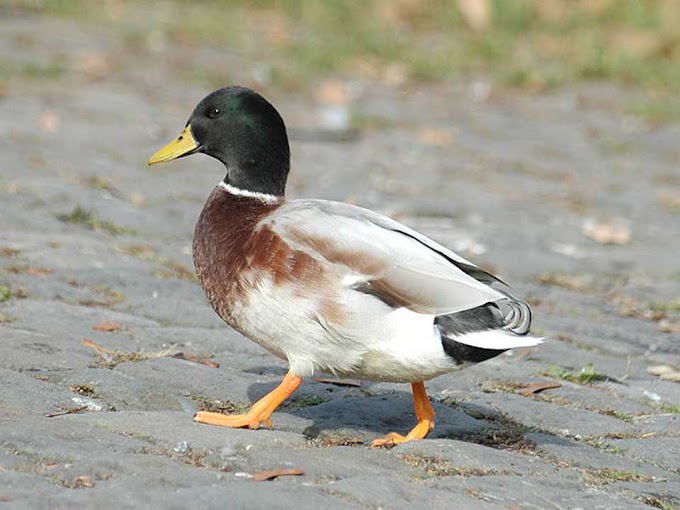American Bobtail Sociable Cat
The American Bobtail is a rare
breed of “Domestic Cat” that was first introduced in the late 1960s. It is very
distinguished for its short "bobbed" tail about 1/3 to 1/2 the length
of a standard cat's tail. This is the consequence of a cat body-type hereditary
alteration disturbing the tail growth, very similar to a Manx cat. The breed is
distinct to the Japanese Bobtail regardless of the similar name and body type; the
breeding programs are completely dissimilar, and the genetic mutation causing
the nodded tail is known to be dissimilar because the mutation producing the
American Bobtail's tail is dominant, while the Japanese Bobtail tail mutation
is receding.
The American Bobtail is a very
strong breed, with both short and long furry coats. The coat of the breed is hairy
rather than solid or fleecy. The bread may have of any color of eyes and coat,
with a strong prominence on the "wild" tabby look in show-animals.
Appearance
American Bobtails need 2 to 3
years to grow, slower than numerous Domestic Cat Breeds. American Bobtail is an enthusiastic
and short-tailed cat breed. Its body is moderately long, with considerable filleting,
and thickset. The posture is remarkably rectangular. The chest is full and
broad. The hips are considerable, nearly as wide as the chest, and hind legs are longer
than forelegs with big rotund feet which may have toe clumps. The head is a
broad wedge without smoothed planes, the size proportional to the body. There is a bowl-shaped
curve from nose to brow or rise to protuberant brow, a wide un-pinched muzzle, protuberant
whisker pads, a mildly sloped extensive nose, and full, robust jaws. The ears
are medium-sized and similarly mounted on top and the side of the head with curved
tips. The eyes are nearly almond-shaped, with a size equivalent to head. The
aperture is angled to a base of the ear, and with an average wide arrangement and
deep holes. Eye color differs with coat color. The end of the tail is noticeable
above the spinal, but not beyond the hock though the animal is in calm. The
tail is straight or bent, somewhat tied or may have bumps.
Behavior
American Bobtail is a lively,
sociable, and soberly active breed. The breed has apparently enough clever inventiveness
to escape from rooms with closed doors and from protected coops. Being friendly
to their owners and custodians, American Bobtails will ask for the care and attention
they need by meowing or just by springing into rounds.
History
Urban fable speaks that
Bobtails are the consequence of cross-breeding between a home (domestic)
tabby cat and a wild bobcat. The uncommon tail is truly the outcome of an unpremeditated
natural genetic mutation within the domestic cat populace and may be correlated
to the Manx gene, which is also dominant. Yodie, a small tailed brown tabby
male, was bred with a seal-point Siamese female to produce the American
Bobtail's original lineage. Most of the initial ancestries have died out.
American Bobtail's original advent
genetics were modified in the breed to formulate a new and better strain which
comes in fundamentally all colors and coats. The breed was primarily documented
by “The International Cat Association” (TICA) in 1989n, also acknowledged for contest
competition by TICA, the Cat Fanciers' Association (CFA), and the American Cat
Fanciers Association (ACFA). The breed is also officially certified in the Cat
Aficionado Association (CAA) of China, by virtue of the CAA having accepted all
of ACFA's breed values; it is unfamiliar if any examples are actually in China.
The breed is accepted as “existing” because of both American Bobtail long-hair
and short-hair, in the World Cat Federation (WCF) of Germany, but the breed is
not "accepted" for the competition shows and has no breed standard.















2 Comments
Hi
ReplyDeleteIf you’ve got a cat that keeps peeing all over your house, it becomes annoying after a while.
The bad smells and the effort involved in cleaning up makes life a misery.
So much so that some people consider getting rid of their cat...
Cuz that seems to be the only logical way to solve the problem.
But the great news is you don’t have to do this.
You CAN keep your cat and stop the problem.
How?
All you have to do is try “Cat Spraying No More”.
It’s a PROVEN step-by-step system guaranteed to stop your cat peeing outside its litter box.
You’ll discover how to use your cat’s own instincts to stop the problem.
And it’s also backed up by a 60-day money back guarantee, so there’s no risk.
>>>No More Cat Urine Everywhere<<<
>>>Use THIS and Your cat will ALWAYS pee in its Litter Box <<<
>>>No More Cat Pee Everywhere<<<
>>>Peace of Mind For A Messy Cat<<<
>>>Go here to find out more… <<<
Talk soon,
[Ana]
This was vey enlightening perusing this blog. A particularly pleasant portrayal If you might want read more about these themes , view cats with big ears
ReplyDelete